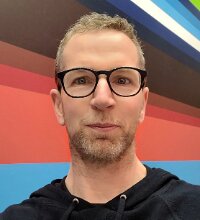We are very proud to announce the following keynote speakers:
Katrien Vangrieken – KU Leuven Professional Learning & Development, Corporate Training and Lifelong Learning (Belgium)
Teamwork makes the dream work. Or doesn’t it? Effective collaboration as a learning journey
Teamwork is assumed to foster educational effectiveness, both in terms of teacher and student outcomes, by allowing us to effectively leverage the capabilities of different teachers. Research also offers support for these assumptions, demonstrating positive outcomes associated with teacher collaboration, at the level of students, teachers, as well as the school as a whole. However, studies equally point at its potential drawbacks, such as an experienced loss of autonomy, the rise of tensions between colleagues, and negative interpersonal processes (e.g., groupthink, social loafing). Hence, while often assumed, effective collaboration and teamwork do not necessarily come naturally. Teamwork failures can substantially impact work and learning processes as well as teachers’ wellbeing. Hence, becoming and remaining effective as a team is inherently a learning process in itself.
During this keynote, we will take a deep dive into teacher collaboration, explore the many different forms it may take and discuss both associated benefits and drawbacks. Furthermore, we will take a look at important cornerstones of effective collaboration and how teams can learn to be(come) effective.
Bio
Katrien Vangrieken is appointed as professor at the centre for Professional Learning & Development, Corporate Training and Lifelong Learning (KU Leuven). Her research is focused on collaboration & teamwork and professional learning in and of teams in organisations. One of the research lines within this topic focuses on professional functioning and collaboration of teachers, with a particular interest in the work-related challenges teachers as collaborative professionals are confronted with.
The courses she teaches in the faculty of Psychology and Educational Sciences are focused on group dynamics and process-oriented team coaching. For further information, please visit: Katrien Vangrieken | KU Leuven

Selection of publications
- Vangrieken, K., De Cuyper, N., De Witte, H. (2023). Karasek's activation hypothesis: A longitudinal test of within-person relationships. Journal of Organizational Behavior, 44, 495-518. https://doi.org/10.1002/job.2669
- Vangrieken, K., Kyndt, E. (2020). The Teacher as an Island? A Mixed Method Study on the Relationship Between Autonomy and Collaboration. European Journal of Psychology of Education, 35 (1), 177-204. https://doi.org/10.1007/s10212-019-00420-0
- Vangrieken, K., Grosemans, I., Dochy, F., Kyndt, E. (2017). Teacher autonomy and collaboration: A paradox? Conceptualising and measuring teachers’ autonomy and collaborative attitude. Teaching and Teacher Education, 67, 302-315. 10.1016/j.tate.2017.06.021
- Vangrieken, K., Dochy, F., Raes, E., Kyndt, E. (2015). Teacher collaboration: A systematic review. Educational Research Review, 15, 17-40. 10.1016/j.edurev.2015.04.002
Thomas Walsh - Maynooth University School of Education (Ireland)
Keynote presentation 2
Teacher Collaboration: Global Discourses, Local Interpretations
Teacher collaboration has long been advocated globally as a vehicle to enhance the quality of teaching and learning experiences for both teachers and students. Such global discourses are informed by a multiplicity of aims and understandings of teacher collaboration, often leading to tensions and contradictions when interfaced with national schooling structures, cultures and priorities. This presentation explores the origins, motivations and influence of key historical and contemporary transnational debates regarding teacher collaboration. Using Ireland as a case study, the interpretation and impact of such global discourses on national policy and practice are explored and critiqued.
Bio
Dr Thomas Walsh is an Associate Professor in the Department of Education, Maynooth University, Ireland. Tom joined the Department in 2014 having previously worked as a primary school teacher, an education researcher and a primary school inspector at the Department of Education and Skills.
Over the past decade, Tom has undertaken a range of leadership roles, including school placement coordinator, Deputy Head of Department, Acting Head of Department and Chairperson of the Maynooth University Social Research Ethics Subcommittee. He is currently coordinator of the Department’s PhD programme. His main research interests focus on contemporary education policies, history of education, curriculum studies and teacher education. He teaches on a range of undergraduate and postgraduate programmes in the Department on topics relating to his research interests. He has published widely in national and international journals and handbooks, and is involved in a range of research collaborations and projects. In 2023-24, he was a visiting Fulbright Scholar at Northwestern University, Chicago, and a Researcher-in-Residence at the Centre Culturel Irlandais, Paris. For further information, please visit: Thomas Walsh | Maynooth University

Selection of publications
- Walsh, T. (2024) 'From ‘sojourning’ to standards: a critical reflection on the evolution of initial teacher education policy in Ireland'. European Journal of Teacher Education (Online). https://doi.org/10.1080/02619768.2024.2323928
- Walsh, T. (2022) 'Promoted widely but not valued’: Teachers’ perceptions of team teaching as a form of professional development in post-primary schools in Ireland'. Professional Development in Education, 48 (4):688-704. https://doi.org/10.1080/19415257.2020.1725596
- Rickard A.; Walsh T. (2019) Policy, practice and process in team teaching: a pilot project with co-operating teachers and student teachers on school placement. Irish Educational Studies, 38(3): 309-326. https://doi.org/10.1080/03323315.2019.1625798
Selected plenary presentation:
Jesús Ribosa and David Duran - Universitat Autònoma de Barcelona (Spain)
Selected plenary session
Four eyes see more than two: On the benefits of reciprocal peer observation as a team-teaching model
Jesús Ribosa and David Duran - Universitat Autònoma de Barcelona (Spain)
Observation is one of several models of team teaching (Baeten & Simons, 2014). In Reciprocal Peer Observation (RPO), two teachers mutually observe an aspect of their teaching practice and provide mutual feedback (O’Leary, 2020). A growing body of research highlights its potential for supporting teacher professional development. Nonetheless, the implementation of RPO remains limited in schools (OECD, 2020).
This presentation draws on seven studies from a broader research project with outcome measures — via pretest–posttest — and process measures — based on written reports and audio recordings — collected from 400 in-service teachers (Duran & De la Iglesia, 2024).
First, RPO can have a positive impact on teachers’ collaborative perceptions. After a single round, resistance towards observing and being observed decreased. Perceiving that both oneself and the colleague were able to correctly perform the roles was key for such reduction (Ribosa et al., 2024a). RPO significantly increased professional closeness between teachers in those who declared an initially low or medium level. Learning perception after RPO was high: 3.44 out of 4 (SD = 0.48). A statistical model showed that rather than initial closeness it was final closeness that significantly affected learning perception: the higher the final closeness, the higher the learning perception (Ribosa et al., 2024b). Moreover, RPO increased teachers’ perception of the school’s collaborative culture and collective agency, without significant changes in their attitude towards collaboration — although, within this dimension, preference for collaboration did increase significantly (Corcelles-Seuba et al., 2024).
Second, RPO can foster reflection and lead to changes in teaching practice. When feedback sessions were analysed, most of them were interactive and more than half of the oral interventions were related to collaborative knowledge building (Flores et al., 2025). Feedback sessions usually met all quality criteria. Those criteria that obtained lower frequencies were more often achieved when the session was dialogical — rather than monological — and when interventions linked to collaborative knowledge building predominated (De la Iglesia et al., 2025). At the end of the RPO procedure, teachers set a professional learning goal. In the most common pattern, which led to higher quality goals, the topic of the learning goal already appeared in the post-observation report and in the feedback session, which probably allowed teachers to refine it throughout the process (Miquel et al., 2024). More importantly, these goals can be successfully transferred to practice, as indicated by most teachers in a second observation (Flores et al., 2024).
Through a simple yet structured procedure that fosters situated reflection on practice, RPO can positively affect teachers’ collaborative perceptions and lead to changes in their teaching practice. These findings strengthen the potential of the observation model of team teaching, both for novice teams — opening the door to other models — and for experienced teams — who may already value having four hands in the classroom but can also benefit from having four eyes focused on professional development.
Selected plenary workshop:
Wendy W. Murawski - California State University Northridge (US)
Selected plenary workshop
Co-teaching without borders: Global research, real strategies, and modeled practice
Wendy W. Murawski - California State University Northridge (US)
Co-teaching is more than a strategy—it’s a partnership that, when implemented effectively, can transform inclusive education. Murawski (2010) defined co-teaching as requiring “co-planning, co-instructing, and co-assessing.” But is this how it is practiced in classrooms across the globe? This dynamic session shares new cross-cultural research on co-teaching, spotlighting its benefits, challenges, and effective strategies from an international perspective.
The primary investigator and presenter collaborated with researchers and experts from multiple countries on a Cross-Cultural Co-Teaching Survey, as well as conducted recorded focus group interviews with international experts in co-teaching and inclusion. The mixed-methods inquiry focused on how general education teachers and special support professionals (e.g., special educators, pedagogues, paraprofessionals, and counselors) co-teach at the PreK–12 level. Inclusive education—where students with disabilities, giftedness, language differences, trauma histories, and other exceptionalities learn alongside their same-age peers—is gaining traction worldwide and different countries are meeting challenges in varying ways (Gulløv & Murawski, 2024; Karten & Murawski, 2023).
The session will present key findings through data graphs, quotes, and video clips from expert participants. The study had three main goals:
1. Foster collaboration among international co-teaching researchers.
2. Conduct comparative analyses of co-teaching implementation across countries.
3. Disseminate findings that inform best practices for inclusive education globally.
But this session won’t be a typical “data dump” with a “talking head presenter.” Instead, the energy will be high and the tone intentionally engaging, using humor, questions, and analogies to keep things lively and applicable while still sharing pertinent research results. Participants can expect laughter, engagement, and increased learning as they incorporate this information to their own experiences and learnings.
Participants will explore how their own country’s practices compare with the findings, gain concrete strategies for implementation, and reflect on how international trends can influence their teaching, research, and advocacy for inclusion. Whether you are a university faculty member, educational researcher, or practitioner in the field, this session offers a rare opportunity to merge data with demonstration, theory with practice, and research with real-world relevance.
Our world is diverse—and our instruction must be too. Thus, this session offers a universally designed pedagogical model while presenting new comparative analysis research on collaborative teaching. Join us to engage in meaningful, cross-cultural dialogue that supports inclusive co-teaching across borders…and get ready to laugh and learn!
-
 University of Antwerp
University of Antwerp -
 University of Antwerp
University of Antwerp